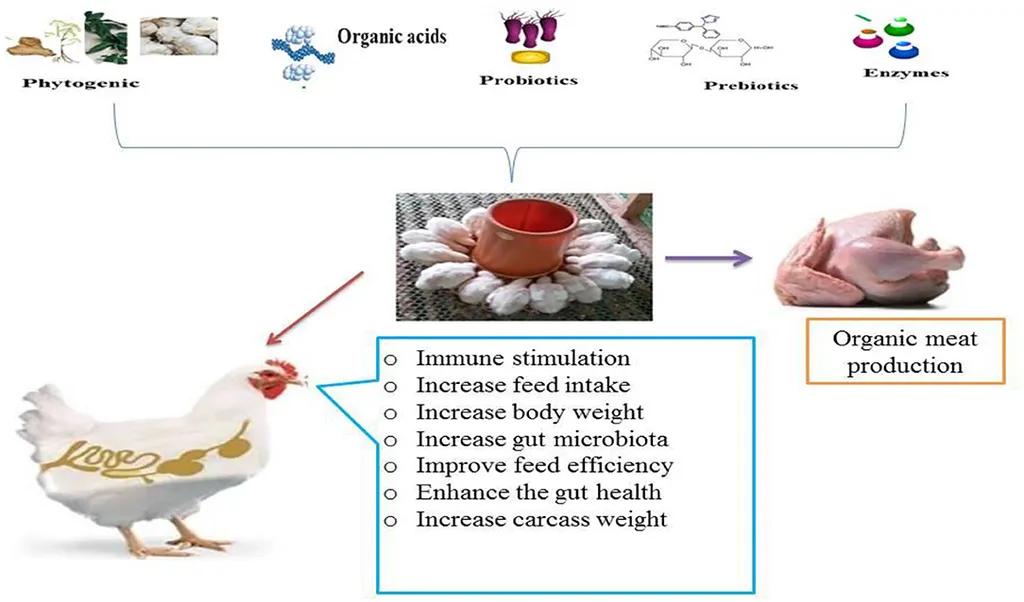In the relentless pursuit of sustainable and efficient poultry farming, a groundbreaking study has emerged, offering a promising solution to a persistent challenge. Researchers, led by Changchun Xu from the Key Laboratory of Feed Biotechnology of the Ministry of Agriculture at the Chinese Academy of Agricultural Sciences, have uncovered the potential of medium-chain fatty acids (MCFAs) to mitigate the impact of Escherichia coli O78 (E. coli O78) infection in broilers. This research, published in the esteemed journal *Poultry Science* (translated as 家禽科学), not only sheds light on the intricate interplay between diet, immunity, and gut health but also opens new avenues for improving poultry performance and welfare.
Avian colibacillosis, caused by E. coli O78, is a significant threat to poultry health and productivity. The study, involving 312 one-day-old male Arbor Acres broilers, explored the effects of dietary MCFAs on growth performance, intestinal immune function, and microbiota composition under E. coli O78 challenge. The results were compelling. Broilers supplemented with 700 mg/kg MCFAs exhibited improved body weight and feed conversion ratios, indicating better growth performance. “The positive impact on growth performance is a crucial finding,” noted Xu, “as it directly translates to improved productivity and economic benefits for poultry farmers.”
The study also revealed that MCFAs enhanced intestinal immune function. Broilers in the supplemented group showed better immune responses, as evidenced by lower spleen indices on day 14 and higher levels of immunoglobulins (IgA, IgM, and IgG) on days 18 and 21. “The modulation of the immune response is a significant aspect of this research,” explained Xu. “It demonstrates the potential of MCFAs to bolster the broilers’ defenses against pathogens, ultimately leading to healthier flocks.”
Moreover, the research highlighted the role of MCFAs in maintaining intestinal integrity. Broilers supplemented with MCFAs exhibited increased villus height in the jejunum and a higher duodenal index on day 21, indicating better intestinal health. The study also found that MCFAs reduced the expression of Toll-like receptor 4 (TLR4) and pro-inflammatory cytokines (IL-1β and IL-6), further emphasizing their immunomodulatory properties.
The impact of MCFAs on gut microbiota was another key finding. While no significant changes in microbial diversity were observed, the abundances of beneficial bacteria such as Lactobacillus spp. and Candidatus_Arthromitus were significantly increased. “The modulation of gut microbiota is a complex process,” said Xu. “Our findings suggest that MCFAs can promote the growth of beneficial bacteria, which in turn contributes to better gut health and overall broiler performance.”
This research holds significant implications for the poultry industry. By incorporating MCFAs into broiler diets, farmers can potentially reduce the impact of E. coli O78 infections, leading to healthier flocks and improved productivity. The findings also pave the way for further exploration of dietary interventions in poultry health management.
As the global demand for poultry products continues to rise, the need for sustainable and efficient farming practices becomes ever more critical. This study, published in *Poultry Science*, offers a promising solution, highlighting the potential of MCFAs to enhance broiler health and performance. The research not only advances our understanding of the intricate interplay between diet, immunity, and gut health but also sets the stage for future developments in the field of poultry nutrition and health management.

